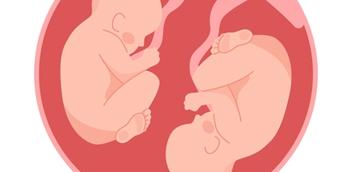
High testosterone levels raise heart disease risk in older women
Women older than age 65 years who are overweight and have elevated levels of testosterone are at increased risk for developing coronary heart disease, insulin resistance, and other manifestations of metabolic syndrome.
Women older than age 65 years who are overweight and have elevated levels of testosterone are at increased risk for developing coronary heart disease, insulin resistance, and other manifestations of metabolic syndrome.
A multicenter study of 344 women between 65 and 98 years of age enrolled in the Cardiovascular Health Study measured levels of total and free testosterone by equilibrium dialysis. Cross-sectional analyses examined associations among total and free testosterone and metabolic syndrome, insulin resistance, and coronary heart disease.
Researchers found a stepwise increase in insulin resistance with increased levels of total (P=.003) and free (P=.02) testosterone and a corresponding decrease in Quantitative Insulin Sensitivity Check Index (P<.001 and P=.002, respectively). Adjusted models also found strong associations between high levels of both total and free testosterone and abdominal obesity and high fasting glucose. Finally, women in the top quartile of total testosterone levels had 3-fold greater odds than women in the bottom quartile of developing metabolic syndrome and 3-fold greater odds than those in the second quartile of developing coronary heart disease.
Patel SM, Ratcliffe SJ, Reilly MP, et al. J Clin Endocrinol Metab. E-pub October 21, 2009. doi:10.1210/jc.2009-0740.
Newsletter
Get the latest clinical updates, case studies, and expert commentary in obstetric and gynecologic care. Sign up now to stay informed.









